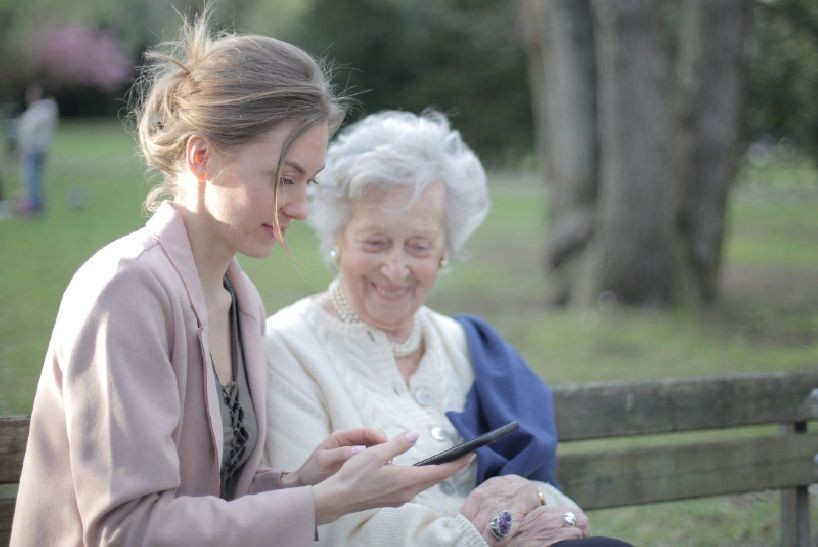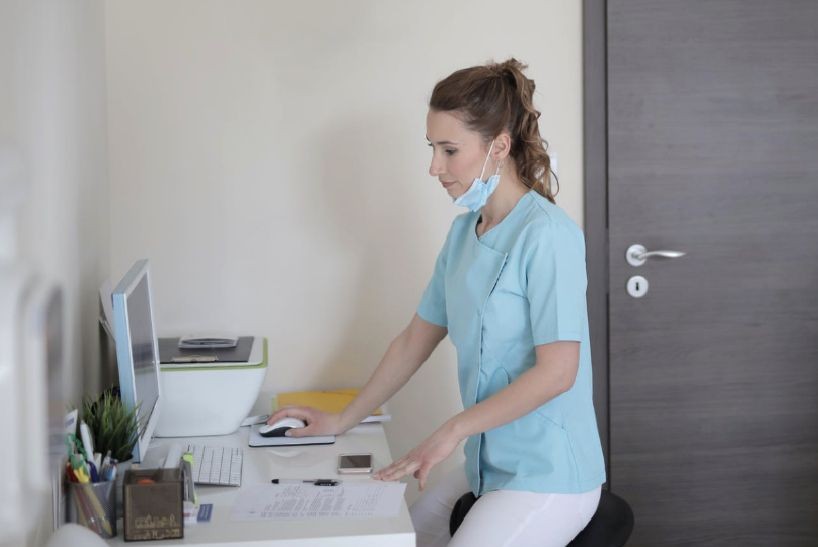Spitex and dementia - challenge and opportunity
Specialist topics
Spitex and dementia - challenge and opportunity
Around 155,000 people in Switzerland live with dementia (as of 2019). Around 40 percent of them are accommodated in care homes. The remaining 60 percent live at home and receive support from their relatives or Spitex specialists. The latter are indispensable for the care of dementia patients. They play a central role in maintaining a functioning care network for clients.

Dementia and its many manifestations
Dementia has many faces. After all, it is an umbrella term for more than 100 different forms of the disease. These can also have different causes. As a result, the disease progresses differently for each client. Common signs, which are nevertheless often similar, are:
- Increasing loss of memory
- Decreasing ability to communicate
- Problems with temporal and local orientation
-
Difficulties with independent living

All of these represent drastic changes in the client's life and that of their relatives.
Dementia can be divided into two main categories: vascular dementia and degenerative brain changes. The causes of the latter have not yet been fully clarified. Probably the best-known representative of this category is Alzheimer's disease. Vascular dementia, on the other hand, is caused by circulatory disorders in the brain. Another trigger can be several consecutive cerebral infarctions.
Die verschiedenen Stadien von Demenz
Dementia is progressive in all its forms. Experts differentiate between the various stages based on how well the person is still able to cope with everyday life. Mild cognitive abnormalities can be very early signs of incipient dementia. However, they can also be a side effect of advancing age.
Whether measures such as screenings for early diagnosis should then be initiated is a question that is repeatedly the subject of controversy. If mild dementia has indeed been diagnosed, the primary aim is to help the person come to terms with the new situation. The expected development is also discussed.
If it becomes increasingly difficult to cope with everyday life despite the support of relatives, the diagnosis is moderate dementia. Helping hands from specialist staff such as Spitex are then necessary.

Due to possible behavioral disorders and emotional outbursts, it becomes increasingly difficult for relatives to take over the care themselves. Adjustments to the daily structure and environment may be necessary. A transition to an inpatient facility is then often advisable.
If the client has reached the point where he or she no longer recognizes relatives, severe dementia has set in. Support is required in every area of daily life and verbal communication is reduced to a minimum. Questions relating to the death of the person with dementia now become increasingly important.
How the proportion of dementia cases in the Swiss population is developing

Dementia is becoming more and more widespread. The reason for this is actually positive. As healthcare and quality of life continue to improve, the life expectancy of the population is increasing. However, this in turn means that diseases that only break out in old age are becoming more common.
Most people with dementia are between 85 and 94 years old. This is closely followed by the 75 to 84 age range. As more and more people are entering these age groups, it is only logical that the number of people suffering from dementia is increasing.
It should not be forgotten that Spitex specialists not only offer support to the clients themselves, but also to their relatives. On average, three family members or close relatives care for a person with dementia.
In addition to 93,000 Swiss people with dementia who live at home - 60 percent of a total of around 155,000 - there are 279,000 other people with dementia. This results in a total of 372,000 people who require support from Spitex staff.
What special challenges do home care professionals face when dealing with dementia?
Due to the increasing number of people with dementia, Spitex organizations and their employees are increasingly in demand. The competent advice and support provided by specialists is an important anchor throughout the course of the illness. The aim is to maintain the client's quality of life as best as possible and to minimize the stress caused by the illness. The person with dementia is always at the center of everything we do.
In the early stages of dementia, clients often notice themselves that their cognitive abilities are declining. This is not easy to deal with and in some cases can lead to depression or even suicidal thoughts. Home care professionals must then act with particular sensitivity. At such times, they are not only responsible for providing nursing care, but also psychological support.
The more advanced the dementia, the greater the demands on home care staff. It becomes particularly difficult when clients have severe communication problems. The same applies if they no longer remember the faces of their own family or the professionals.
They may then become frightened and resist any kind of nursing action. This requires a high degree of mental strength on the part of the Spitex professionals as well as patience and a calm nature. Trust may have to be rebuilt again and again.
What additional skills does dealing with dementia require from home care professionals?
The number of clients suffering from dementia is very likely to continue to increase in the future. It is therefore all the more important that the skills of home care professionals in this area are continuously expanded. Regular further training is not the only important aspect here.
A lively exchange between research and practising professionals is also important. This is the only way to ensure that new findings can be put into practice as quickly as possible.
However, the most important basic requirement is and remains a high level of knowledge of the disease among home care professionals. They must be familiar with the many facets of the disease. This is the only way for the specialist staff to be able to respond to the very individual needs of the clients.
Acquire advanced skills

The training and further education of Spitex staff with regard to dementia is probably one of the greatest challenges. Staff are under great economic and time pressure - not least due to the shortage of specialists in Switzerland.
Nevertheless, there are various ways to improve specialist knowledge of the clinical picture and how to deal with clients. These include further training to become a dementia coach. However, this is not the only possible way to acquire further knowledge.
In advanced stages of dementia, when it is difficult to recognize people, it is helpful if as few professionals as possible are involved. This is possible if the nursing staff can administer medication prescribed by the family doctor or prescribe it themselves.
This is possible, for example, through a curriculum for advanced practice nurses. These nurses are effectively an extension of the doctor and can diagnose and treat simple illnesses themselves.
Find the right Spitex with OPAN®
We at OPAN® will be happy to help you find a suitable Spitex for your relative. Simply enter his or her zip code and any organizations in the vicinity will appear. Take your time to make comparisons and decide at your leisure.
Once you have made your choice, you will need to enter your personal details and the name of the doctor treating you. A Spitex representative will contact you within a short time and initiate the next steps. We will be happy to assist you in using our platform. If you have any questions, please contact us by phone or e-mail!
